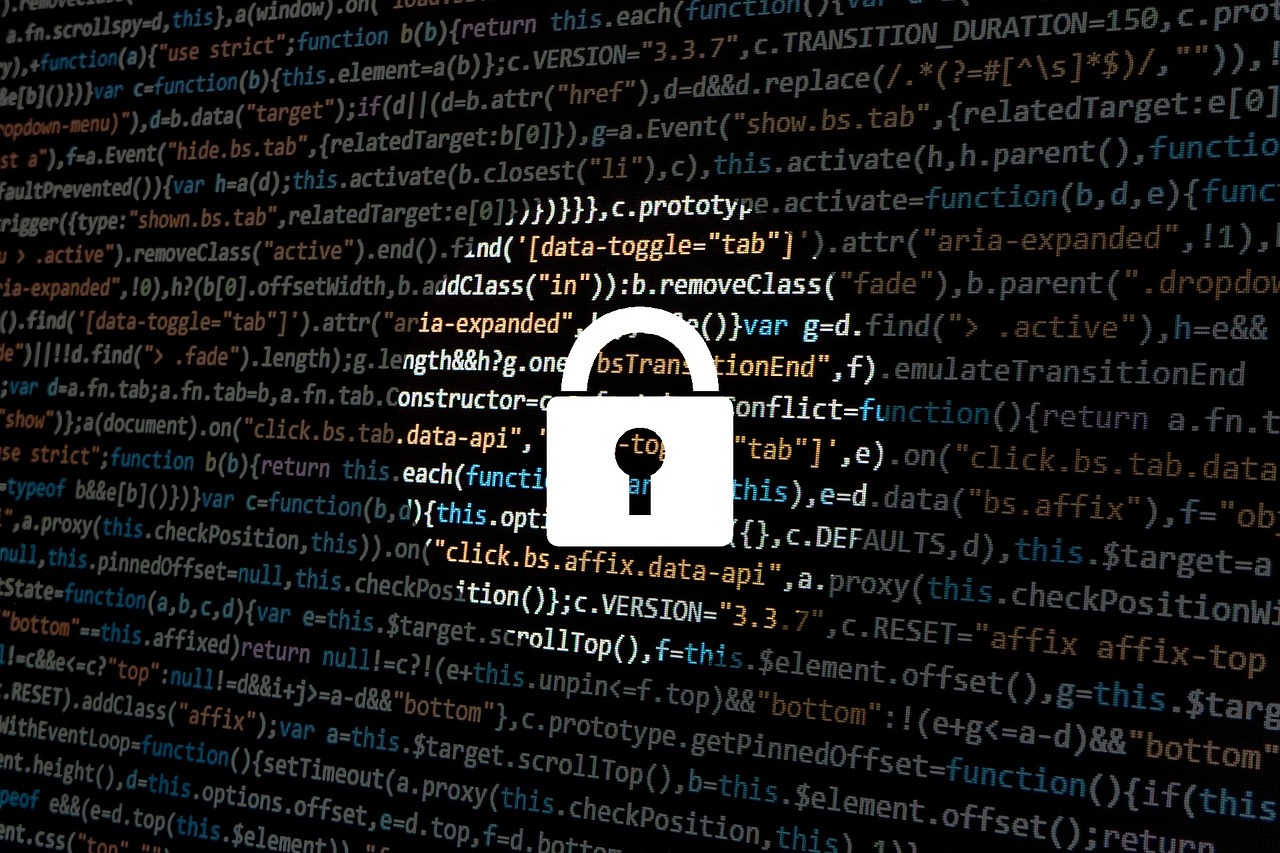In today’s digital age, data privacy and GDPR compliance have become paramount concerns for online businesses. With increasing instances of data breaches and privacy violations, it is crucial for businesses to take proactive measures to safeguard their customers’ information. This article will provide you with valuable insights and practical tips on how to ensure data privacy and GDPR compliance for your online business, empowering you to navigate through the complex world of data protection effortlessly.
1. Understanding the General Data Protection Regulation (GDPR)
1.1 Key provisions of the GDPR
The General Data Protection Regulation (GDPR) is a comprehensive data protection law that was implemented in 2018 to regulate the processing and protection of personal data within the European Union (EU). It applies to all businesses that handle the personal data of EU citizens, regardless of their location.
Some of the key provisions of the GDPR include the following:
-
Lawful basis for data processing: The GDPR requires that businesses have a lawful basis for collecting and processing personal data. The most common lawful bases are consent, contractual necessity, legal obligation, vital interest, public task, and legitimate interests.
-
Data subject rights: The GDPR grants several rights to individuals whose data is being processed, including the right to access, rectification, erasure, restriction of processing, data portability, and the right to object.
-
Data breach notification: Businesses are required to notify the relevant supervisory authority and affected individuals of any data breaches that are likely to result in a risk to the rights and freedoms of individuals.
-
Accountability and compliance: The GDPR places a strong emphasis on accountability and requires businesses to demonstrate compliance with the regulation by implementing appropriate technical and organizational measures to protect personal data.
1.2 The importance of GDPR compliance
Ensuring GDPR compliance is crucial for your online business for several reasons:
-
Legal requirements: Non-compliance with the GDPR can result in significant fines and legal consequences. Organizations can be fined up to 4% of their annual global turnover or €20 million, whichever is higher, for serious infringements of the regulation.
-
Reputation and trust: Demonstrating a commitment to data privacy and GDPR compliance can enhance your online business’s reputation and build trust with customers. Consumers are increasingly concerned about the privacy and security of their personal data, and being GDPR compliant can help you establish a positive image in the market.
-
Competitive advantage: GDPR compliance can give your online business a competitive edge. Customers are more likely to choose businesses that respect their privacy rights and handle their personal data in a secure and transparent manner.
-
Data protection: By complying with the GDPR, you are actively taking steps to protect the personal data of your customers. Implementing GDPR-compliant practices can help safeguard sensitive information, reduce the risk of data breaches, and protect against cyber threats.
2. Assessing Your Online Business’ Data Privacy Risks
2.1 Identifying the types of personal data you collect
As an online business, it is important to have a clear understanding of the types of personal data you collect from your customers or website visitors. Personal data includes any information that can directly or indirectly identify an individual, such as names, addresses, email addresses, phone numbers, IP addresses, and financial information.
Conduct a thorough review of your data collection practices and identify all the categories of personal data you collect. This will help you assess the level of risk associated with the processing of that data and determine the appropriate measures to protect it.
2.2 Analyzing data flow within your online business
Understanding how data flows within your online business is essential for assessing data privacy risks. Map out the journey of personal data from the point of collection to its storage, processing, and eventual disposal. Identify any third parties or external service providers that have access to this data.
By analyzing data flow, you can identify potential vulnerabilities or weaknesses in your data privacy practices. This will enable you to implement appropriate safeguards to protect personal data at each stage of its lifecycle.
2.3 Evaluating potential data breaches and impacts
Assessing the potential risks related to data breaches is crucial for maintaining data privacy. Conduct a thorough evaluation of potential data breaches that could occur within your online business. Consider scenarios such as unauthorized access to personal data, accidental loss or destruction of data, or data breaches resulting from cybersecurity incidents.
Evaluate the potential impacts of these data breaches, both in terms of financial and reputational damage to your online business, as well as the potential harm to the individuals whose personal data has been compromised. This assessment will help you prioritize data privacy measures and allocate resources effectively.

3. Implementing GDPR-Compliant Data Privacy Practices
3.1 Obtaining and managing user consent
One of the fundamental principles of the GDPR is obtaining and managing user consent for the processing of personal data. Review your consent mechanisms and ensure they meet the requirements of the GDPR.
When collecting personal data, provide clear and transparent information about the purposes of the processing, the lawful basis for processing, and any third parties who will have access to the data. Obtain explicit and freely given consent from individuals and give them the option to withdraw their consent at any time.
3.2 Safeguarding personal data storage and access
Protecting personal data during storage and limiting access to authorized personnel is crucial for GDPR compliance. Implement robust security measures such as encryption, access controls, and regular security audits to safeguard personal data from unauthorized access, loss, or damage.
Consider implementing multi-factor authentication and data encryption technologies to enhance the security of personal data stored within your online business. Regularly review and update your security practices to address emerging threats and vulnerabilities.
3.3 Data minimization and purpose limitation
Ensure that the personal data you collect is limited to what is necessary for the purpose of processing. Avoid collecting excessive personal data that is not directly relevant to your business operations.
Review your data practices and assess whether there are any opportunities to minimize the personal data collected. Adopt data anonymization and pseudonymization techniques wherever possible to further protect individuals’ privacy.
3.4 Maintaining data accuracy and transparency
Maintaining accurate and up-to-date personal data is a key aspect of GDPR compliance. Establish processes to regularly review and update personal data to ensure its accuracy and relevancy.
Transparency is also important. Provide individuals with clear and easily accessible information about the personal data you hold about them, the purposes and legal basis for processing, and their rights as data subjects.
3.5 Handling data subject requests and rights
Under the GDPR, individuals have various rights regarding their personal data. Implement processes and procedures to effectively handle data subject requests, such as requests for access, rectification, erasure, and data portability.
Establish mechanisms to handle these requests within the specified timeframes and ensure that individuals’ rights are respected.
3.6 Appointment of a Data Protection Officer (DPO)
Consider appointing a Data Protection Officer (DPO) to oversee data privacy practices within your online business. The DPO should have expertise in data protection laws and regulations and should act as a point of contact for individuals and supervisory authorities.
A DPO can provide guidance on GDPR compliance, monitor data protection activities, and ensure ongoing compliance with the regulation.
4. Necessity of Privacy Policies and Cookie Consent
4.1 Creating a thorough privacy policy
Having a comprehensive and transparent privacy policy is essential for GDPR compliance. Your privacy policy should clearly articulate how you collect, process, and protect personal data. It should also inform individuals about their rights and provide details about how they can exercise those rights.
Ensure that your privacy policy is written in clear and plain language, easily accessible on your website, and regularly updated to reflect any changes in your data privacy practices.
4.2 Ensuring transparent cookie consent practices
If your online business uses cookies or similar tracking technologies, it is important to obtain users’ consent in accordance with the GDPR. Implement mechanisms such as cookie banners or pop-ups that clearly inform users about the use of cookies and provide them with options to manage cookie preferences.
Allow users to give specific and granular consent to different types of cookies and provide them with the ability to withdraw consent or change their preferences at any time.

5. Conducting Data Protection Impact Assessments (DPIAs)
5.1 Understanding the purpose and importance of DPIAs
A Data Protection Impact Assessment (DPIA) is a process that helps identify and minimize data protection risks associated with certain data processing activities. Conducting DPIAs is particularly important for high-risk processing activities that are likely to result in a high risk to individuals’ rights and freedoms.
DPIAs enable you to assess the necessity and proportionality of the processing, identify potential risks, and implement measures to mitigate those risks. They also demonstrate your commitment to data privacy and GDPR compliance.
5.2 Steps to conduct a DPIA
To conduct a DPIA, follow these steps:
-
Identify the need for a DPIA: Determine whether a particular processing activity requires a DPIA based on its nature, scope, context, and potential risks.
-
Describe the processing: Clearly define the purpose, nature, scope, and context of the processing activity, including the categories of personal data involved and any third parties who will have access to the data.
-
Assess necessity and proportionality: Evaluate the need for the processing activity and assess whether the benefits of the processing outweigh the potential risks to individuals’ rights and freedoms.
-
Identify and assess risks: Identify and evaluate the risks associated with the processing, including potential security vulnerabilities, data breaches, or other adverse impacts on individuals.
-
Mitigate risks: Implement appropriate measures to mitigate the identified risks, such as encryption, access controls, or anonymization techniques.
-
Consult relevant stakeholders: Seek input and feedback from relevant stakeholders, such as data subjects, data protection authorities, and internal departments.
-
Document and review: Document the DPIA process, including the assessment findings, measures implemented, and any decisions made. Regularly review and update the DPIA to reflect changes in data processing activities or risk profiles.
6. Implementing Data Breach Response and Notification Procedures
6.1 Establishing a data breach response plan
Data breaches can occur despite robust data privacy measures. Establish a data breach response plan to ensure that you can effectively respond to and mitigate the impact of a data breach.
The response plan should outline the steps to be taken in the event of a data breach, including identifying and containing the breach, assessing the risks to individuals, notifying the relevant supervisory authority and affected individuals, and implementing measures to prevent further breaches.
Train employees on the data breach response plan and regularly test the plan to ensure its effectiveness.
6.2 Notifying data subjects and relevant authorities
In the event of a data breach that is likely to result in a high risk to individuals’ rights and freedoms, you are obligated to notify the affected individuals and the relevant supervisory authority without undue delay.
The notification should include information about the nature of the breach, the categories of personal data affected, the potential consequences, and the measures being taken to mitigate the breach.
Maintain a record of all data breaches and notifications to demonstrate your compliance with the GDPR.

7. Maintaining Data Privacy During International Data Transfers
7.1 Understanding restrictions on international data transfers
The GDPR imposes restrictions on the transfer of personal data outside the European Economic Area (EEA) to countries that do not ensure an adequate level of data protection.
Before transferring personal data internationally, assess the legal mechanisms available for ensuring the protection of personal data, such as standard contractual clauses, binding corporate rules, or the EU-US Privacy Shield (for transfers to the United States).
Ensure that any third parties, such as cloud service providers or international business partners, who receive personal data from your online business adhere to the GDPR’s requirements for international data transfers.
7.2 Employing appropriate transfer mechanisms
Choose the most appropriate transfer mechanism based on the specific circumstances of your international data transfers. For example, if you transfer personal data to a third-party service provider, you can use standard contractual clauses to ensure an adequate level of protection.
Regularly review and update your transfer mechanisms to ensure ongoing compliance with any changes in data protection laws or regulations.
8. Regular Data Privacy Audits and Compliance Monitoring
8.1 Scheduling and conducting regular privacy audits
Regular privacy audits are essential for maintaining GDPR compliance. Schedule and conduct internal audits to assess the effectiveness of your data privacy practices and identify any areas of non-compliance or potential risks.
The audit should review your data processing activities, data protection policies and procedures, data breach response plans, and training programs for employees. Consider engaging independent third-party auditors to provide a comprehensive and unbiased assessment of your data privacy practices.
8.2 Monitoring compliance with GDPR guidelines
Implement processes to continuously monitor compliance with GDPR guidelines. Regularly review and update your data privacy policies and procedures to reflect any changes in the regulatory landscape or your business operations.
Provide ongoing training and awareness programs to employees to ensure they remain up to date with GDPR requirements and best practices for data privacy.

9. The Role of Employee Training and Awareness
9.1 Educating employees about data privacy and GDPR compliance
Employees play a significant role in ensuring data privacy and GDPR compliance within your online business. Conduct regular training sessions to educate employees about data privacy principles, the requirements of the GDPR, and their responsibilities in protecting personal data.
Topics covered during employee training should include data handling procedures, data subject rights, consent management, data breach response, and the importance of maintaining confidentiality and integrity of personal data.
9.2 Implementing internal policies and procedures
Develop and implement clear internal policies and procedures that align with the requirements of the GDPR. These policies should cover areas such as data protection, data retention, access controls, data breach response, and employee responsibilities.
Regularly review and update these policies to reflect changes in the regulatory environment and evolving best practices. Ensure that employees are aware of these policies and adhere to them in their day-to-day activities.
10. Consequences and Penalties for Non-Compliance
10.1 Understanding GDPR enforcement and potential penalties
Non-compliance with the GDPR can result in severe consequences and penalties. The supervisory authorities have the power to impose fines and other corrective measures to ensure compliance.
The maximum fine for serious infringements of the GDPR is up to 4% of the annual global turnover of your online business or €20 million, whichever is higher. Fines may be imposed for violations such as inadequate security measures, failure to obtain user consent, or inappropriate data handling practices.
10.2 Mitigating risks through compliance measures
The best way to mitigate the risks of non-compliance is to proactively implement robust data privacy practices and adhere to the requirements of the GDPR.
By understanding the key provisions of the GDPR, regularly assessing your data privacy risks, implementing GDPR-compliant practices, maintaining a privacy policy, conducting DPIAs, establishing data breach response procedures, ensuring international data transfer compliance, conducting privacy audits, providing employee training, and monitoring compliance, you can significantly reduce the likelihood of non-compliance and the associated penalties.




